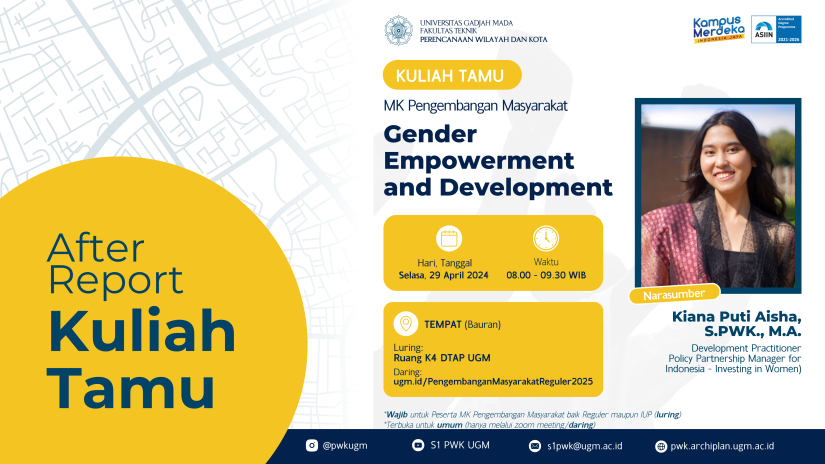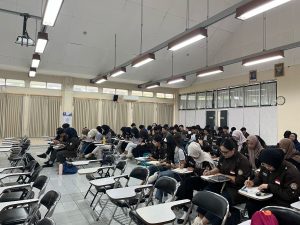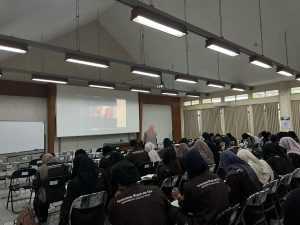
Yogyakarta, April 29, 2025 – The Undergraduate Program in Urban and Regional Planning held another guest lecture on Tuesday, April 29, 2025. This edition focused on the theme “Gender Empowerment and Development”, featuring Kiana Puti Aisha, S.PWK, M.A., a Development Practitioner and Policy Partnership Manager for Indonesia – Investing in Women, as the guest speaker.
This guest lecture aimed to explore the role of gender in the context of planning and development, how gender-related issues such as gender equality influence planning policies and practices, and the dynamics and challenges involved.
The lecture began with an introduction to the concepts of gender, gender equality, and gender within the development context. A key takeaway from this session was the critical importance of integrating gender in development processes. Gender should be understood not just as an individual issue but as a broader, more complex, and systemic concern. It shapes access to resources, decision-making processes, and opportunities. Issues like gender inequality are often perpetuated across generations, and wise gender interventions can significantly enhance the effectiveness and reach of development outcomes.
Common gender-related challenges in development include gender inequality and the unequal treatment of women, particularly in public infrastructure and services that often fail to consider women’s needs—especially in terms of safety. Additionally, gender stereotypes and the underrepresentation of women in decision-making are ongoing issues. In many cases, women’s presence in public institutions is viewed as symbolic rather than substantive, as reflected in their limited representation in government bodies and leadership roles.
Gender and development align closely with several Sustainable Development Goals (SDGs), particularly:
-
SDG 5: Gender Equality
-
SDG 8: Decent Work and Economic Growth
-
SDG 10: Reduced Inequalities
This guest lecture offered valuable insights on why gender-sensitive approaches are essential in planning and development. Understanding and addressing gender dynamics is not only a matter of fairness but also a key factor in achieving inclusive, effective, and sustainable development.
Source: https://pwk.archiplan.ugm.ac.id/after-report-kuliah-tamu-gender-empowerment-and-development/


